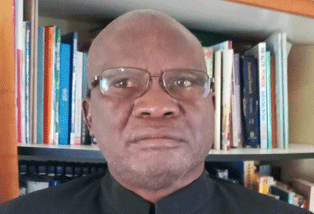By Prof Makala Lilemba
The architects of our valued constitution in 1990 found it in their guided wisdom by the Good Lord to insert Article 21 (1) which clearly states among other things that all persons shall have the right to: (a) freedom of speech and expression which shall include freedom of the press and other media; (b) freedom of thought, conscience and belief, which shall include academic freedom in institutions of higher learning.
The list of freedoms meanders and goes on including freedom of associations, freedom to form and join associations or unions, trade unions and political parties.
These are noble ideas, which the government has under difficult conditions tried to uphold. There are cases where the powers that be have violated the constitutional provision, but the law took its course. However, these noble courses are being violated by a clique, which claim to be “academicians and custodian of historical knowledge of the Zambezi region.”
This clique has gone every way in discrediting the literary works of history authored by reputable scholars. In the world of academia, researched work is countered by scholars through research papers in books and other forms of scholarly work. For an academician to claim that the Mafwe were created by Kurt Streitwolf in 1909, the first German Resident Commissioner in the then Caprivi Zipfel is irrational and smells of tribal sentiments.
Here is literature pertaining to the presence of the Mafwe in the region around 1740 and even earlier than that (Mupatu 1957, Mainga 1973, Pretorius 1975, O”Sullivan 1993, Katanekwa 2016). Katanekwa a renowned archaeologist in his excavations at Salumano village in Lusu District, Western Province of Zambia found that the other section of the Mafwe and Shanjo lived side by side by 400 AD.
General literature might carry with it Eurocentrism but the matter about the presence of Mafwe motifs in the area was researched and found to be true and verifiable. With the Luyana descendants of the Mamilis, it is verifiable that they migrated like other groups from the Lui River, Kola District in the Democratic Republic of the Congo.
Although academic freedom permits criticism of any literary work, it should be done in an academic and civilised manner. In the world of academic, there is a space for literature review, which calls in other scholars to close the gap, which might have been left out through oversight by the scholar who conducted the initial research. In any atmosphere, which is cordial, scholars can exchange notes on the similar subject. In this process, the scholars may even jointly co-own the subject being researched. This is lacking among scholars from the Zambezi region, where they should interact with one another and exchange notes on topics.
Book processing and writing should follow the process of content editing, language editing and verifications in terms of topics corrections and other legal rights. The publishers are equally well aware to publish books which are not erroneous, that could lend them to legal battle in a court of law. Equally, there is always an issue of book review for the next edition, in which information which was left out can either be added or revisited for accuracy. Above those authors, themselves conduct self-censorship in both books and in the writing of articles. Authors are not immune to arrests should they publish something defaming one’s characters without proof. However, this does not scare authors to tell the truth as it is, but always stand their ground. Authors are like journalists who are there to inform people of what is happening in their communities and in the world. In the said clique’s attack on scholarly literary work done by the author of this article, followed some elements of inciting violence.
This is extreme and indeed uncalled for. This may not be strange because in some quarters of the world, authors have been physically attacked by other people for expressing their free thinking and opinions. Rushdie, the author of Satanic Verses has recently been stabbed in the neck more than thirty years after his book was published in 1990 or thereabout. The clique in question is known and some of them claim to be staunch supporters of the ruling and in fact have served in regional councils. Their presence and voices in the clips which have been circulating in the Zambezi region, may tarnish the name of the ruling party if they are not called to order. In fact, the clips violating academic freedom have been submitted to some authorities in the Zambezi region. It is normal for academicians to carry on with different scholarly opinions and co-exist academically but it is not acceptable to threaten one another.
That situation is not tenable and sustainable in the world of academia as this regime is a fraternity one. The world is where it is today in terms of advancement technologically and information explosion because of different but supporting mass of information. In a functioning democracy, these threats could have been taken seriously and the culprits taken to court to answer to charges of inciting violence and stirring up tribal sentiments. The Zambezi clique seems to be operating like a secret cult or an underground organisation which should be stopped in its tracks before it causes harm through its incitement of violence. Finally, the call by the clique upon the Subia youth to start writing articles is noble if it is done in good spirit.


